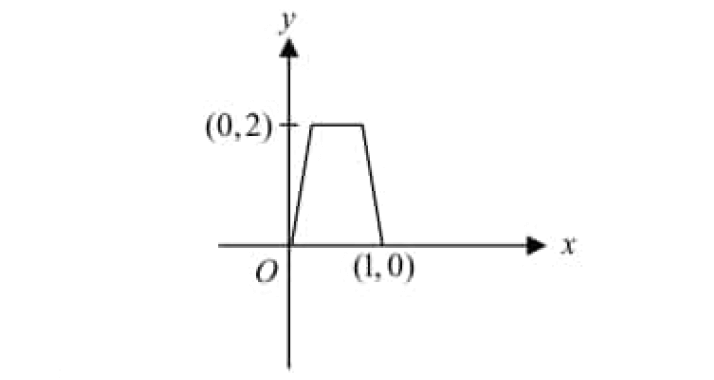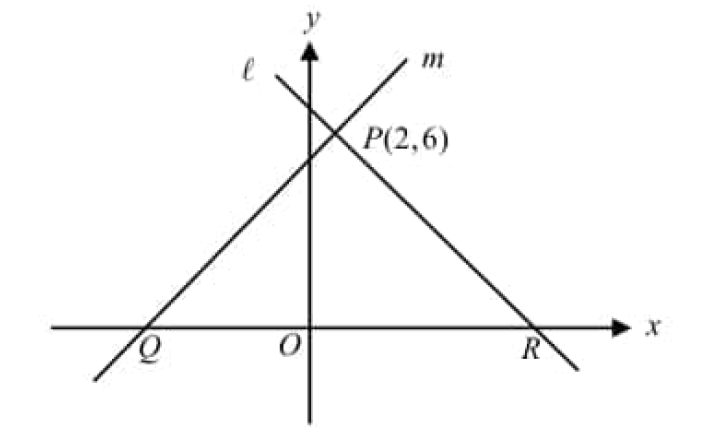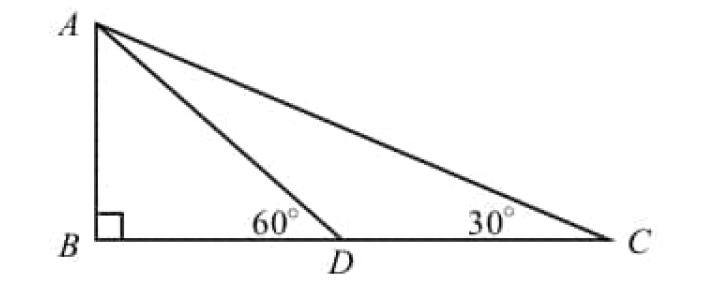SIMPLIFYING RADICAL TERMS
Simplify :
Problem 1 :
(3√2)2
Solution :
(3√2)2 = 3√2
× 3√2
= (3 ⋅ 3) [√(2 ⋅ 2)]
= 9 × 2
= 18
So, the answer is 18.
Problem 2 :
- 2√3 × 4√3
Solution :
-2√3 × 4√3 = (- 2 ⋅ 4) [√(3 ⋅ 3)]
= - 8 × 3
= - 24
So, the answer is - 24.
Problem 3 :
3√2 - √8
Solution :
= 3√2 - √8
By decomposing √8, we get
= 3√2 - √(4 2)
= 3√2 - 2√2
= √2
So, the answer is √2.
Problem 4 :
2√3 × 3√5
Solution :
2√3 × 3√5 = (2 ⋅ 3) [√(3 ⋅ 5)]
= 6√15
So, the answer is 6√15.
Problem 5 :
(2√5)2
Solution :
(2√5)2 = 2√5
× 2√5
= (2 ⋅ 2) [√(5 ⋅ 5)]
= 4 × 5
= 20
So, the answer is 20.
Problem 6 :
5√2 - 7√2
Solution :
= 5√2 - 7√2
= -
2√2
So, the answer is - 2√2.
Problem 7 :
(√3)4
Solution :
(√3)4 = √3 ⋅ √3 ⋅ √3 ⋅ √3
= (√3 ⋅ 3) (√3 ⋅ 3)
= 3 × 3
= 9
So, the answer is 9.
Problem 8 :
√3 × √5 × √15
Solution :
= √3 × √5 × √15
= √(3 ⋅ 5 ⋅ 15)
= √(15 ⋅ 15)
= 15
So, the answer is 15.
Problem 9 :
Write √48 in simplest radical form.
Solution :
√48 = √(2 ⋅ 2 ⋅ 3)
= 2√3
So, the simplest radical form is 4√3
Problem 10 :
Write √75 in simplest radical form.
Solution :
√75 = √(5 ⋅ 5 ⋅3)
= 5√3
So, the answer is 5√3.
Problem 11 :
What is the set of all solutions to the equation
√(x + 18) = −2x?
(A) {−2, −6} (B) {−2} (C) {3}
(D) There are no solutions to the given equation.
Solution :
√(x + 18) = −2x
Squaring on both sides, we get
x + 18 = (-2x)2
x + 18 = 4x2
Subtracting x and 18 on both sides
4x2 - x - 18 = 0
4x2 - 9x + 8x - 18 = 0
x(4x - 9) + 2(4x - 9) = 0
(x + 2)(4x - 9) = 0
Equating each factor to 0, we get
x + 2 = 0 and 4x - 9 = 0
x = -2 and x = 9/4
So, the values of x are -2 and 9/4. Then option B is correct.
Problem 12 :
3√8x3
If x < 0, which of the following is equivalent to the expression above ?
(A) -8x (B) -2x (C) 2x (D) 2x3
Solution :
= 3√8x3
= 3√2⋅2⋅2⋅x⋅x⋅x
Since it is cube root, we have to factor out only one value for every three same values.
= 2x
Problem 13 :
√x = x - 2
What is the greatest value of x that satisfies the above equation ?
Solution :
√x = x - 2
Squaring on both sides,
(√x)2 = (x - 2)2
x = x2- 4x + 4
x2- 4x - x + 4 = 0
x2- 5x + 4 = 0
(x - 1)(x - 4) = 0
x = 1 and x = 4
So, the greatest value of x is 4.
Problem 14 :
If a = 3√7/4 and 4a = √3b, what is the value of b ?
(A) 4/3 (B) 7 (C) 21 (D) 63
Solution :
a = 3√7/4 ------(1)
4a = √3b -----(2)
From (1), multiplying by 4 on both sides, we get
4a = 3√7
From (2), we have the value of 4a.
3√7 = √3b
Squaring on both sides
(3√7)2 = (√3b)2
9(7) = 3b
3b = 63
b = 63/3
b = 21
So, the value of b is 21.
Problem 15 :
Simplify the radical expression 6/√3 ?
Solution :
6/√3
Since we have radical at the denominator, in order to remove the radical, we have to multiply by /√3 in both numerator and denominator.
= (6/√3) ⋅ (√3/√3)
= 6√3/3
= 2√3
So, the answer is 2√3.
Problem 16 :
2√45 - 2√5
Solution :
2√45 - 2√5
= 2√(3⋅3⋅5) - 2√5
= (2⋅3)√5 - 2√5
= 6√5 - 2√5
= 4√5
Problem 17 :
-3√5 - √6 - √5
Solution :
= -3√5 - √6 - √5
By combing the like terms, we get
= -4√5 - √6
Problem 18 :
√2(√6 - √10)
Solution :
= √2(√6 - √10)
Using distributive property,
= √2 √6 - √2√10
= √(2x6) - √(2x10)
= √(2x2x3) - √(2x2x5)
= 2√3 - 2√5
We cannot combine, because these two are not like terms.
So, the answer is 2√3 - 2√5.
Problem 19 :
√49a8x12
Solution :
= √49a8x12
Trying to decompose each term as product of two same terms.
= √(7 ⋅ 7 ⋅ a4 ⋅ a4⋅ x6 ⋅ x6)
Since we have two same terms which are multiplied inside the square root sign, we have to factor one value out of the square root sign.
= 7 a4x6
Problem 20 :
√5xy √40x3y
Solution :
= √5xy √40x3y
Using the properties of square root,
= √(5xy ⋅ 40x3y)
= √(5xy ⋅ 2 ⋅ 2 ⋅ 2 ⋅ 5 x3y)
= 5 ⋅ 2 x2 y √2
= 10x2y √2
So, the answer is 10x2y √2.
Problem 21 :
3√162x5/3√3x2
Solution :
= 3√162x5/3√3x2
Using the properties of square root,
= 3√(162x5/ 3x2)
= 3√(54 x3)
= 3√(3 ⋅ 3⋅ 3 ⋅ 2 x3)
= 3 x 3√2
Kindly mail your feedback to v4formath@gmail.com
We always appreciate your feedback.
©All rights reserved. onlinemath4all.com
Recent Articles
-
Digital SAT Math Problems and Solutions (Part - 213)
Jul 13, 25 09:51 AM
Digital SAT Math Problems and Solutions (Part - 213) -
Digital SAT Math Problems and Solutions (Part - 212)
Jul 13, 25 09:32 AM
Digital SAT Math Problems and Solutions (Part - 212) -
Digital SAT Math Problems and Solutions (Part - 211)
Jul 11, 25 08:34 AM
Digital SAT Math Problems and Solutions (Part - 211)


